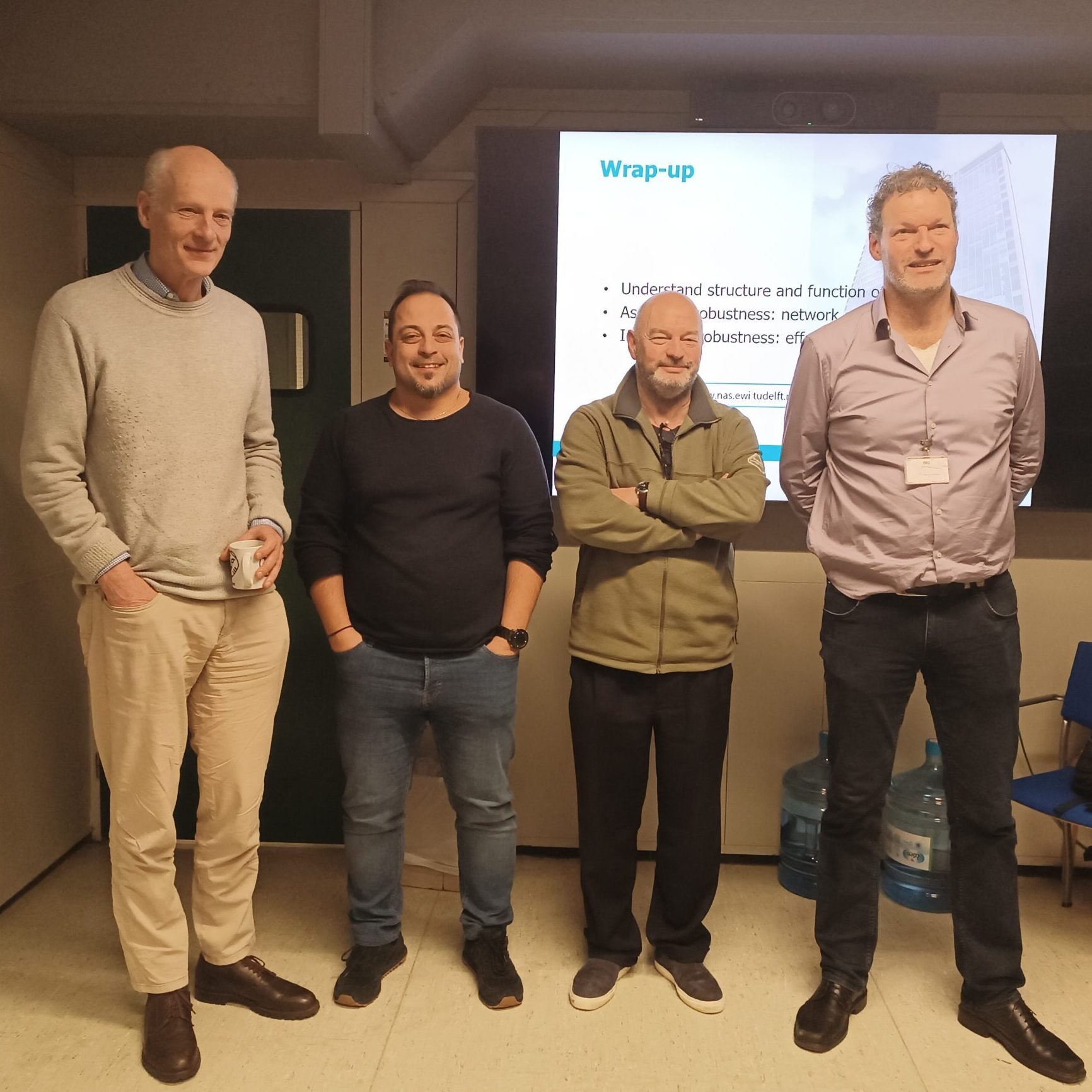Today, 1st of February, prof. dr. Robert Kooij, head of the department of Quantum and Computer Engineering (QCE) at Delft University of Technology visited the Department of Neuroscience and the NCL for a talk on the topic of Robustness of Complex Networks.
Talk Summary: Network Science aims to understand the graph structure of networks and the dynamic processes that take place on networks. Examples of processes on networks are transport of items (IP packets with digitalized information, cars, containers) and diffusion (epidemics, electric current, water flows, human emotions). The Network Architectures and Services Section at the Delft University of Technology contributes to the fundaments of Network Science: They investigate amongst others geometric representations of networks, epidemic spread on networks, spectra of graphs and network algorithms. In addition, they apply their mathematical knowledge to the design, management and control of critical infrastructures, such as telecom networks and power grids, in order to make these networks robust, resilient, efficient and reliable. In this talk, two examples of their results in the field of robustness of complex networks, namely robustness of network controllability and the improvement of robustness by link addition were presented.
Speaker Bio: Rob Kooij has a background in mathematics: he received both his MSc and PhD degree cum laude at Delft University of Technology, in 1988 and 1993, respectively. From 1997 until 2003 he was employed at the research lab of KPN, the largest telecom operator in the Netherlands. From 2003 until 2018 he was employed at the ICT Unit of TNO, the Netherlands Organization of Applied Scientific Research. In 2011 he became principal scientist, conducting and managing research on Critical ICT Infrastructures. Since 2005 Robert is part-time affiliated with the Delft University of Technology, at the faculty of Electrical Engineering, Mathematics and Computer Science. Since 2010 he is a part-time full professor with the chair “Robustness of Complex Networks”. From 2018 until 2020, professor Kooij lived in Singapore, where he got a position as principal research scientist at the Singapore University of Technology and Design, working on a project related to cyber resilience for critical infrastructures.

